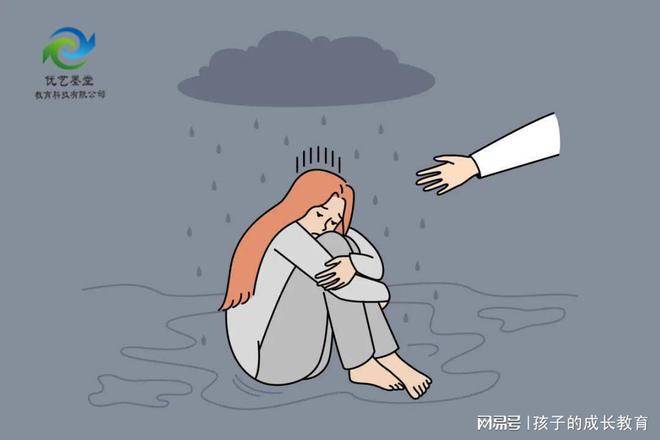Impact of Adolescent Depression on the Establishment of Adult Interpersonal Relationships and Coping Strategies
Introduction:
Adolescence is a crucial period of transition from childhood to adulthood for individuals. However, depression often plagues teenagers during this period, profoundly affecting their psychological well-being. This article aims to explore the correlation between adolescent depression and the establishment of adult interpersonal relationships, uncover its potential obstacles, and propose corresponding coping strategies.
I. Overview of Adolescent Depression
Adolescent depression is an emotional disorder that occurs during the teenage years, characterized by persistent feelings of sadness, loss of interest, and decreased energy. In recent years, the prevalence of depression among teenagers has been increasing, with statistics indicating that about 4%-8% of teenagers may suffer from depression. This data highlights the severity of psychological issues among adolescents and reminds us to pay attention to the impact of depression on their growth.
II. Potential Obstacles of Adolescent Depression to the Establishment of Adult Interpersonal Relationships
1. **Long-term Damage to Self-awareness and Self-esteem**: Adolescent depression is often accompanied by negative thoughts such as self-denial and self-deprecation, leading teenagers to doubt their abilities and worth, thus developing feelings of inferiority. Once this inferiority complex is formed, it is difficult to eliminate in a short period and may even persist throughout their lives. In adulthood, this sense of inferiority can impact their social interactions, making it challenging for them to confidently express their needs and desires when establishing relationships with others.
2. **Continual Decline in Emotional Management and Coping Skills**: Adolescent depression affects teenagers’ ability to regulate emotions, making it difficult for them to break free from negative emotions. This lack of emotional regulation can become entrenched, causing them to still struggle with effectively managing various emotional challenges in adulthood. In social interactions, they may experience conflicts with others due to their inability to handle their emotions properly, thereby affecting the harmony of interpersonal relationships.
3. **Lack of Social Skills and Social Anxiety**: Adolescent depression is often accompanied by social difficulties, making it challenging for teenagers to build positive interpersonal relationships. This lack of social skills can persist into adulthood, resulting in a lack of support and assistance in the workplace and daily life. Prolonged social distress can lead to social anxiety, fear of social interaction, and further exacerbate their sense of isolation.
4. **Lack of Trust and Unstable Interpersonal Relationships**: Adolescent depression may lead teenagers to develop a suspicious and distrustful attitude toward others, hindering them from forming stable interpersonal relationships. In adulthood, their lack of trust may make it difficult for them to establish deep emotional connections with others, resulting in fragile and unstable relationships.
5. **Communication Barriers and Difficulty in Expressing Emotions**: Adolescents with depressive tendencies may find it difficult to express their opinions and emotions, leading to communication barriers that may persist into adulthood. They may cause misunderstandings and conflicts due to their inability to accurately express their needs and desires, further disrupting the harmony of interpersonal relationships.
III. Specific Impacts of Adolescent Depression on the Establishment of Adult Interpersonal Relationships
1. **Influence on Workplace Relationships**: In the workplace, the effects of adolescent depression may manifest as communication barriers, cooperation difficulties, and a lack of team spirit with colleagues, superiors, or subordinates. This interpersonal tension can affect work efficiency and career development.
2. **Impact on Family Relationships**: In family relationships, the effects of adolescent depression may include estrangement from family members, lack of intimacy, and difficulties in emotional communication. This can lead to a tense and discordant family atmosphere, affecting the happiness of family members.
3. **Influence on Social Circles**: In social circles, the effects of adolescent depression may result in difficulty integrating with groups, lack of friends, and reduced social activities. This social isolation can exacerbate their depressive state, creating a vicious cycle.
IV. Coping Strategies and Recommendations
1. **Provide Psychological Support**: For teenagers already experiencing depression, timely seek professional psychological counseling and diagnostic evaluation. Through methods such as psychological counseling and intervention, depression can be effectively alleviated, reducing its impact on interpersonal relationships.
2. **Cultivate a Positive Mindset and Coping Mechanisms**: Parents and teachers should guide teenagers in cultivating a positive mindset and coping mechanisms, such as learning to relax, seeking help, and maintaining optimism. These positive attitudes and coping strategies can help them better deal with life challenges and difficulties, maintaining harmony in interpersonal relationships.
Conclusion:
Adolescent depression poses potential obstacles to the establishment of adult interpersonal relationships, including damaged self-awareness and self-esteem, declining emotional management and coping skills, lack of social skills and social anxiety, lack of trust and unstable interpersonal relationships, communication barriers and difficulty expressing emotions, etc. To alleviate the impact of these obstacles, we need to strengthen mental health education, provide psychological support, cultivate a positive mindset and coping mechanisms, and create a conducive social environment.


